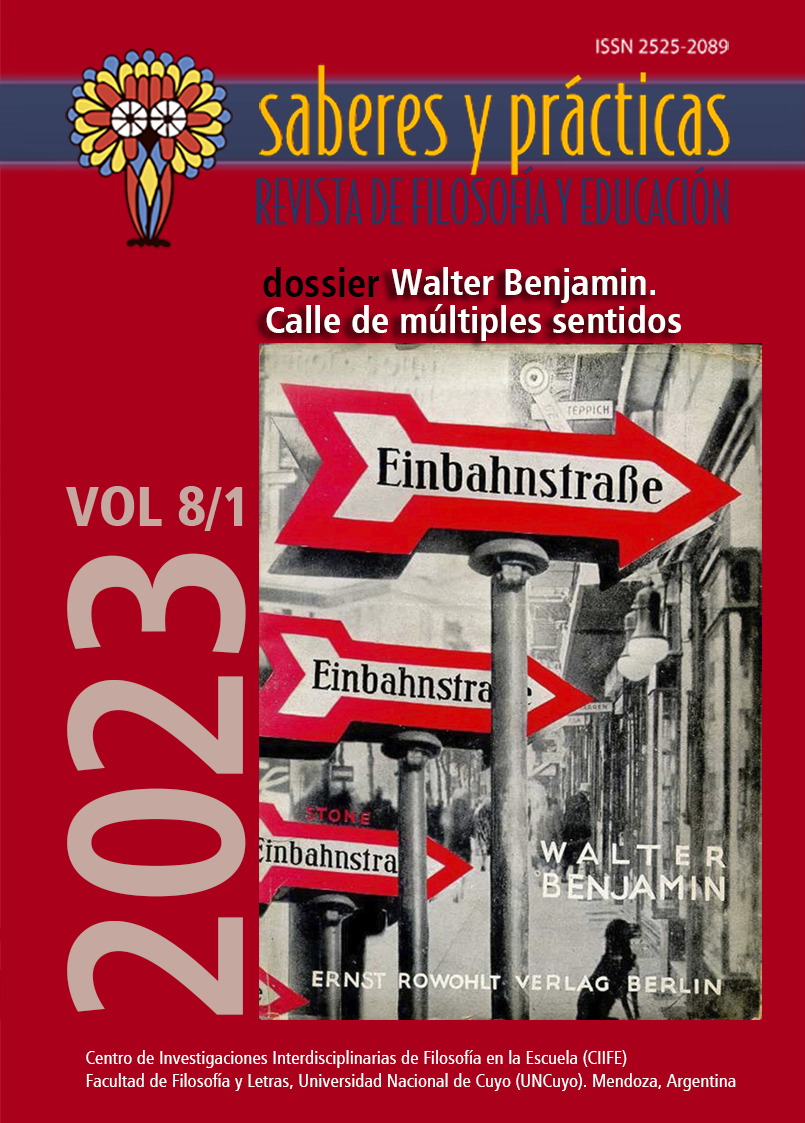Marcuse, Benjamin and Heidegger: three reflections on the phenomenon of modern technique and its social implications
DOI:
https://doi.org/10.48162/rev.36.099Keywords:
Marcuse, Benjamin, Heidegger, Technique, social implicationsAbstract
The question of technique and its possible effects and implications in contemporary societies is a recurring theme explored by 20th-century philosophers. This phenomenon was addressed in different ways by those who tried to understand the rhythm of the societies in that period. We are particularly interested in discussing the analysis of three authors who, in our opinion, have reflected on the question of modern technique along with other key social and cultural aspects for a deeper understanding on the matter. On one hand, Herbert Marcuse refers to technological advances within the framework of a critical diagnosis of advanced capitalist societies with an interest in the possibility of transforming them. Walter Benjamin, on the other hand, reflects on technical progress in relation to its possibilities in the aesthetic field: the technical reproducibility of works of art and, specifically, the political meaning of this phenomenon along with its symptomatic nature of the social process in general. Finally, Martin Heidegger also approaches the question of modern technique and some of its implications, but from another point of view: within the framework of a reflection on the history of the interpretation of being or, better, of metaphysics. We are interested in trying to find a connection among the analysis of these thinkers, and, perhaps, finding and articulating some points of agreement or, also, disagreement.
Downloads
References
Benjamin, W. (1987). Calle de dirección única. Ediciones Alfaguara.
Benjamin, W. (2003). La obra de arte en la época de su reproductibilidad técnica. Editorial Ítaca.
Fischetti, N. (2016). Filosofía de la técnica, humanismo y política. Heidegger y Marcuse, entre el destino y la posibilidad. Mutatis Mutandis. Revista Internacional de Filosofía, Santiago de Chile; Año: 2016 p. 59-75.
Heidegger, M. (1960). La época de la imagen del mundo. En Sendas Perdidas. Lozada.
Heidegger, M. (1994). La pregunta por la técnica. En Conferencias y artículos. Ediciones del serbal.
Heidegger, M. (2007). ¿Qué es Metafísica? En Hitos. Alianza.
Heidegger, M. (2002). Serenidad. Editorial del Serbal.
Maliandi, R. (2014). Ética y efectos políticos-sociales de la tecnología. Páginas De Filosofía, 2(2), pág. 5–11. https://revele.uncoma.edu.ar/index.php/filosofia/article/view/563
Marcuse, H. (2008). Eros y Civilización. Ariel.
Marcuse, H. (2010). El hombre unidimensional. Ensayo sobre la ideología en la sociedad industrial avanzada. Ariel.
Marcuse, H. (1969). Un ensayo sobre la liberación. Joaquín Mortiz.
Marcuse, H. (2001). Algunas implicaciones sociales de la técnica moderna. En Guerra, tecnología y fascismo. Textos inéditos. Universidad de Antioquía.
Mourenza, D. (2013). Dreams of a Better Nature: Walter Benjamin on the Creation of a Collective Techno-Body. Revista Teknokultura, Vol. 10, Núm. 3: 693-718.
Rodríguez, R. (2006). Heidegger y la crisis de la época moderna. Síntesis.
Published
How to Cite
Issue
Section
License
Copyright (c) 2023 Betina Vazquez
This work is licensed under a Creative Commons Attribution-NonCommercial-ShareAlike 2.5 Argentina License.





















